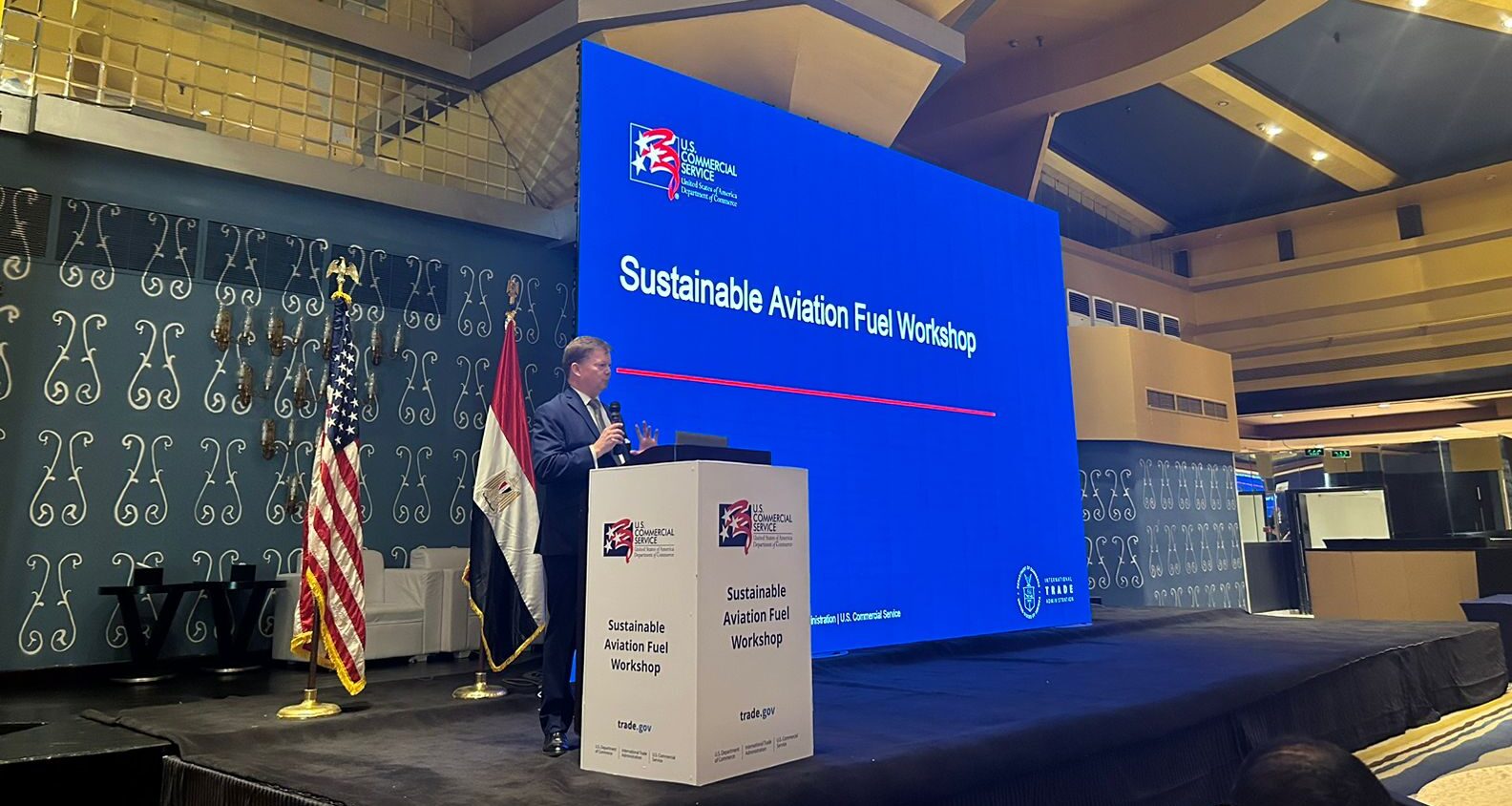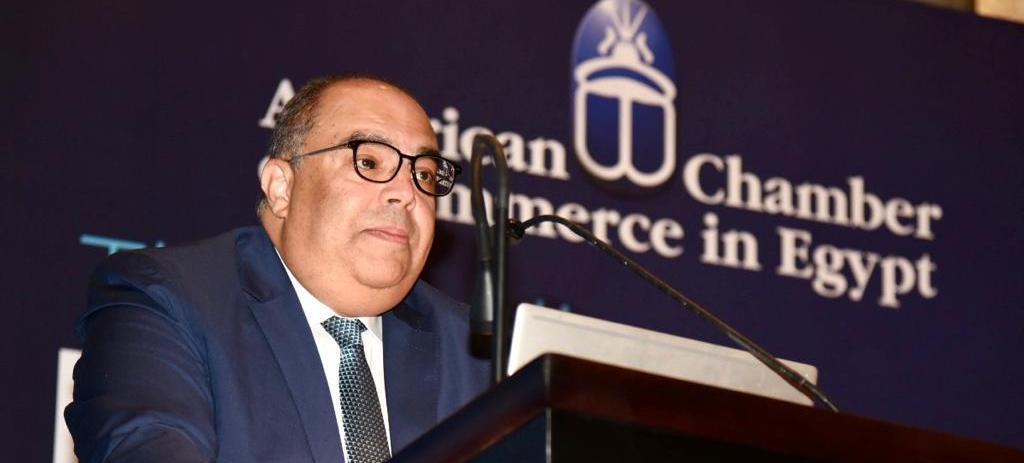US firms are currently exploring various roads of collaboration with Egypt in the realm of Sustainable Aviation Fuel (SAF) production, Minister Counsellor of Commercial Affairs at the US Embassy in Cairo Keith Kirkham said at a panel discussion co-organized by the US Commercial Service of the US Department of Commerce and the US Embassy in Cairo on June 15.
Kirkham emphasized that companies are now ready to commit to partnerships with both Egypt’s private and public sectors to advance SAF initiatives in Egypt and the Middle East and North Africa (MENA) region.
SAF production has now become the fresh ground to tap into as MENA nations aim to ramp up efforts to fulfill promises to attain sustainable development goals (SDGs) by 2025 and 2030 in the aviation industry.
On the sidelines of the event, Business Monthly sat with representatives of aviation firms operating in the Middle East and North Africa (MENA) to discuss the prospects and challenges of SAF in the region.
According to the International Air Transport Association (IATA), SAF is a liquid fuel used in commercial aviation which lowers carbon emissions by up to 80%. The eco-friendly SAF can be easily produced from waste oil and fats, green and municipal waste, and non-food crops, which makes it possible to produce and use.

Fostering green alternatives
The demand for SAF is currently surpassing the available supply, Mohamed Al-Ghailani, the regional lead for Sustainability Policy and Partnerships for Middle East, Turkey, and Africa US aircraft manufacturer Boeing, told Business Monthly. “SAF could contribute to around 65% of the reduction in emissions needed from the aviation industry to reach net zero by 2050. This requires a massive increase in production to meet growing demand,” he asserted.
The largest acceleration of demand is expected in the 2030s, as policy support becomes global and SAF becomes competitive with fossil kerosene, and credible offsets become scarcer, he said. Until then, SAF needs to meet the technical standards and requirements and ensure that the fuel is feasible, safe, and certifiable, according to Al-Ghailani.
For Egypt, the government is building on the momentum from COP27 with potential opportunities to capitalize on to become a hub for SAF in the region,” Al-Ghailani said. He further highlighted the North African country’s focus on sustainability, the potential to produce renewable energy, and green hydrogen, which are all critical for sustainable aviation fuels,” he stated.
Speaking of challenges, Al-Ghailani explained that SAF used in the market across the region is extremely limited representing just around 1% of the global jet fuel demand, which means that in Egypt and globally, we are at a very early stage in this field.
Boosting production
Director of Fuel and Emission at EgyptAir, Ahmed Mattar, stressed that SAF production in the region represents an opportunity for its countries as each of them has a national SDG agenda to meet by 2025 and 2030.
EgyptAir has a commitment to fulfill, which is using 2% of SAF as an aviation fuel minimum starting in 2025 in all of its flights.
“The opportunity and the challenge in the meantime for a country like Egypt is to initiate the production of such a high-demand product and to be a hub for such industry in Africa, with a robust commitment from the Egyptian side to make a progress in meeting the global SDGs,” Mattar explained.
He added that SAF production in the MENA region will definitely ramp up to achieve sustainability visions, particularly concerning reaching the zero-emissions goal.
Yet, such an industry needs private sector investments as well as the know-how experience to be delivered into the region’s economies, which both represent a challenge for the region amid the ongoing global economic troubled situation, according to Mattar
Meanwhile, the Head of the Middle East and Africa (MEA) Region at General Electric Aerospace, Main Canaan, expressed that good efforts are being taken despite the industry challenges, especially the scarcity of the material, its costs, its supply, and infrastructure, and how to change all of that for a strong SAF product.
Yet with all this, people are still moving and not giving up,” he concluded.







